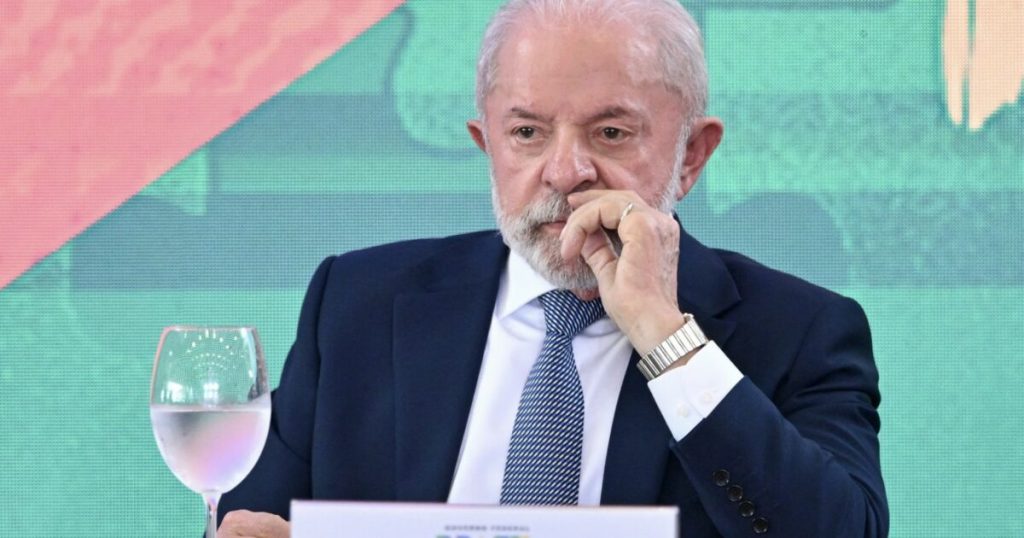Paragraph 1: The Genesis of the Trade Dispute
The trade dispute between Brazil and the United States ignited in August 2023 when former US President Donald Trump imposed a hefty 50% import tariff on a range of Brazilian goods. This action, characterized by Brazilian President Luiz Inácio Lula da Silva as “tariff blackmail,” significantly impacted Brazil’s export market, leading to an 18.5% year-on-year decline in exports to the US in August alone. Trump justified his decision by accusing Brazil of conducting a “witch hunt” against his ally, former Brazilian President Jair Bolsonaro, who faced trial for allegedly plotting a coup following his electoral defeat to Lula in October 2022. This politically charged backdrop set the stage for a complex trade conflict with potential ramifications for both nations and the broader global trade landscape.
Paragraph 2: Lula’s Condemnation and the BRICS Platform
President Lula vehemently denounced Trump’s tariff imposition, characterizing it as a dangerous precedent in international trade relations. He argued that such tactics were becoming normalized as tools for market manipulation and interference in the domestic affairs of sovereign nations. Lula chose the platform of a virtual BRICS summit – a meeting of the leaders of Brazil, Russia, India, China, and South Africa – to voice his concerns. This forum, representing a bloc of influential emerging economies, served as a strategic platform for Lula to garner support and highlight the potential global implications of Trump’s actions. The presence of leaders like Xi Jinping of China, Vladimir Putin of Russia, and Cyril Ramaphosa of South Africa underscored the significance of the issue within the context of evolving global power dynamics.
Paragraph 3: Bolsonaro’s Trial and its Impact
The trial of Jair Bolsonaro for allegedly plotting a coup against Lula’s government formed the crux of the political tension fueling the trade dispute. Trump’s support for Bolsonaro, coupled with his accusations of unfair treatment against his ally, added a layer of complexity to the trade conflict. The impending verdict in Bolsonaro’s trial, expected shortly after the tariff imposition, loomed large over the trade dispute, potentially exacerbating tensions or, conversely, offering an opportunity for de-escalation depending on the outcome. The intertwining of legal proceedings with trade policy underscored the delicate interplay of domestic politics and international relations.
Paragraph 4: Brazil’s Response and the WTO’s Role
Brazil reacted to the US tariffs by exploring retaliatory trade measures, signaling its determination to defend its economic interests. Simultaneously, Brazil sought the intervention of the World Trade Organization (WTO) to mediate the dispute. This appeal to the WTO highlighted Brazil’s commitment to resolving the conflict within the established framework of international trade rules. Brazil’s dual approach of considering retaliatory measures while pursuing a WTO resolution reflected a calibrated strategy aimed at both protecting its domestic industries and upholding the principles of multilateral trade.
Paragraph 5: The Broader Implications for Global Trade
The trade dispute between Brazil and the US carried implications beyond the bilateral relationship. Lula’s warning about the normalization of “tariff blackmail” resonated with concerns about the potential erosion of the rules-based international trading system. The use of tariffs as political leverage could set a dangerous precedent, encouraging other nations to adopt similar tactics, thereby undermining the stability and predictability of global trade flows. The dispute highlighted the vulnerability of emerging economies to protectionist measures imposed by larger powers, potentially hindering their economic development and integration into the global market.
Paragraph 6: The Intersection of Politics and Economics
The Brazil-US trade conflict exemplified the complex intersection of politics and economics in international relations. Trump’s decision to impose tariffs, ostensibly motivated by his support for Bolsonaro, underscored the potential for political considerations to override economic rationale in trade policy. This politicization of trade posed a challenge to the established norms of international trade, which ideally prioritize mutually beneficial economic exchange. The dispute served as a stark reminder of the delicate balance between political alliances and economic interests in shaping global trade relations.














